Those Who
Were There
Colonel William Goffe
The English Civil War was full of fascinating characters, but perhaps one of the most interesting is the story of Colonel William Goffe, Roundhead, Politician and Soldier.
He was born in Sussex in 1605 and was a devout Parliamentarian. He married Frances Whalley, the daughter of General Edward Whalley, whom he was to see a lot of in later life. He was imprisoned for a short while in 1642 for his part in raising a petition to give control of the Militia to Parliament, but when the English Civil War started in 1642 he joined Colonel Harvey’s regiment of the New Model Army and was appointed Captain.
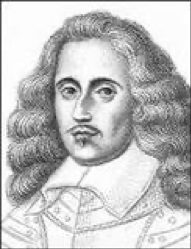
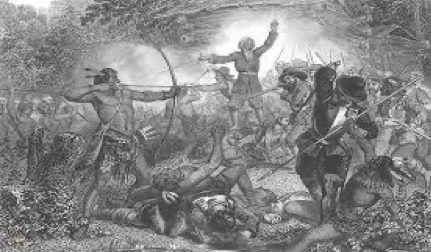
He was active in the Parliamentary army that besieged Worcester in July 1646 and rose to the rank of Colonel. When King Charles I was put on trial in January 1649 he was appointed as one of the 68 Commissioners who tried and convicted Charles and he was one of the 59 signatories of the King’s death warrant who became known as the ‘regicides’ (Latin for King Killers).
When Charles II returned to Scotland in 1650 Goffe commanded a Parliamentary regiment at the battle of Dunbar on 3rd September 1650 and also at the battle of Worcester exactly 12 months later. He became a firm favourite of Oliver Cromwell.
He was appointed Member of Parliament for Yarmouth in 1654 and resumed his military career in 1655 to put down Penruddock’s Uprising, an attempted Royalist insurrection led by Colonel John Penruddock. The Royalists were soundly beaten and Penruddock was executed.
Goffe resumed his Political career in 1655 as MP for Hampshire, but when Charles II returned in 1660, the King made it clear that he would pardon all who fought for Parliament during the Civil War, but he would never forgive the regicides.
So William Goffe and his Father-in-Law Colonel Edward Whalley, both of whom who had signed the King’s death warrant, thought it would be wise to leave the country. Twenty nine of the regicides who were still alive in 1660 were hung, drawn, and quartered, and many others fled the country.
Goffe and Whalley reached Boston, Massachusetts on 27th July 1660, never to see their families again. Many of the settlers in Massachusetts were English Puritans and were sympathetic to the plight of Goffe and Whalley, so they were welcomed and well looked after. However, Charles II appointed agents to track down the regicides and bring them back to England for execution. A reward of £100 was to be paid for their capture, dead or alive, and they had many narrow escapes avoiding the agents. They frequently moved around Massachusetts and Connecticut; at one stage they hid in a cave which today is known as ‘The Judges Cave.’
Whalley died in about 1675 but in September 1675 William Goffe was to enter American Folklore as ‘The Angel of Hadley.’ At this time Goffe was living in Hadley, Massachusetts but the settlers were at war with the Native Americans in what became known as King Phillip’s War. King Phillip was the name given to the Indian chief who united the tribes of Massachusetts to drive the white man out of their land. Hadley was attacked by a large force of Indians and out of the smoke and chaos strode the 70 year old Colonel Goffe, with long grey hair and a long grey beard, with his English Civil War sword in one hand and a pistol in the other. It had been 20 years since he had defeated the Penruddock Uprising and 24 years since the Battle of Worcester, but he clearly still had his military skills as he organised the settlers into defending their town and driving off the Native Americans.
Goffe was celebrated as a hero but he could not acknowledge the praise as he did not wish to reveal his identity as there were still agents hunting for him. Because of his ghost like appearance he became known as ‘The Angel of Hadley.’ He died of natural causes, still a free man in 1675.
Goffe and Whalley are featured in the novel, ‘Act of Oblivion’ by Robert Harris
Sir Andrew Melvill (b. 1624 Midlothian Scotland)
Soldier of Fortune who fought at the Battle of Worcester in the service of King Charles II (was seriously wounded but was nursed back to health by a Worcester Woman and her daughters)
[The Battle of Worcester]
(1650) Charles the Second, King of England, was then at Breda, with the intention of crossing to Scotland, whither he was now called as king. I went to see him and received from that Prince all the condescension that I could possibly expect. My duty and my inclinations naturally prompted me to prefer his service to that of any other, and his promises succeeded in securing my adhesion and I engaged to follow him to Scotland.
I had first to return to Flanders to ask leave of the Archduke, and this I did without delay. That good Prince used all his endeavours to retain my services, but seeing it was in vain he acceded to my request with perfect grace. Moreover, he offered in the most obliging manner in the world, without my suggesting it, to write to the King about me in complimentary terms (1651) Our own journey took us to Saint Johnston’s where the King then was, to whom I had the honour of paying my obeisance and delivering up the letters of the Archduke and the Duke of Lorraine. I was-very well received by His Majesty. He told me that he hoped quite soon to proceed to England with his Army and promised most graciously to give me some employment in it. I was at Court for fifteen days without any visible result from his promise, but at the end of that time I was commanded to go and wait on the Duke of Hamilton, who was raising troops in the North of Scotland and under whom I was to serve as a Major, Patent for which I there and then received. I proceeded at once to take up my new duties, and after being with the Duke for five or six weeks, he saw fit to send me to the King so that I might give him information as to the state of things in general….I continued my journey to Stirling, where I joined the King, who was satisfied with my conduct and retained me near his royal person, being then on the point of entering England indeed, shortly after, the King assembled his army and marched on Worcester. As soon as we had arrived there, I had orders to accompany the Earl of Derby, who was to raise a regiment in the Isle of Man; but Cromwell did not permit us to get so far, he caught us on the way with his army; and the best we could do was to return in all haste to the King with the news. He was inferior to the enemy both in military strength and in experience, but nevertheless prepared to receive Cromwell with great courage. And after having arrayed his forces to the best possible advantage, he accepted battle with more resolution than good fortune.
It was on the third day of September that the famous battle was fought at the gates of Worcester, which our Army had occupied. Everybody knows the unfortunate issue it had for the King and regards the manner of his escape as little short of miraculous.
But as this has no bearing upon my adventures, I will not speak further of it, and will revert to the battle, which began at nine in the morning and did not cease till eight in the evening. At the commencement we gained some slight advantage, but having forfeited it by our own fault, we in our turn were thrown into disorder and obliged to retreat in a manner very much resembling flight. We thought, and with some justification, that Cromwell would stop there and not press an engagement during the night with his tired troops, in order to pursue us into a town which supported our cause. But we had to deal with the man who of all the world knew best his own advantages and how best to pursue them. He pressed us with such fury in our retreat that confusion seized our men, who broke and took to open flight, and the pursuing army entered the town at their heels.
At the time I knew nothing of this as I had followed the King, who himself had been one of the first to enter the town; but no sooner had I left him than I saw the turn things were taking. I had received a wound in my arm, but instead of going to have it dressed I ordered my servant to fetch my things which had been left in my lodgings and to join me in the street. Whilst I was waiting for him in the saddle, I heard the voices of two horsemen shouting to the citizens to place lights in the windows. Thinking those men belonged to our side I shouted with them. This made them look up at me and seeing me with a white sash they cried out that I was a Royalist; and fell upon me. When I saw what they were about I fled into another street and met a squadron of their horse, into the midst of which I dashed, shouting “Here is the enemy!” but in trying to evade a small evil I fell into a greater one. One of the officers, seeing that I was of the King’s army, came upon me still unsuspecting, or I could have easily either escaped or shot him with the pistol in my hand. He thrust his sword through the shoulder-piece of my buff-jerkin and sent me reeling from my horse.
Next moment I found myself surrounded by soldiers, who pulled me hither and thither and would soon have stripped me naked, had not a Cornet taken pity at seeing me in their hands and asked who I was. I told him I was an officer and begged him not to allow me to be treated otherwise than as a prisoner of war should be treated.
Touched by my appeal, he came to my rescue and ordered off the soldiers who had surrounded me; but one of them, furious at being deprived of his booty, cried out, “At least no one else shall get it,” and sent a pistol bullet into my stomach. I fell weltering in the blood, which flowed in great gushes from my wound, but I did not lose consciousness. The Cornet, grieved at being the innocent cause of my misfortune, approached and asked if I thought it possible (that) I could survive. I answered that I thought I might live if I received assistance. He made his men take me up and himself helped them to lift me on to one of their horses; and in this condition had me conducted outside the city to the foot of a hill which the enemy had already taken. When we were within sight of the guard that had been posted there, the Cornet, who had not abandoned me, called to them they were to come down, as he had a captured officer to hand over to the guard. A sergeant appeared at this order, and my generous deliverer was very reluctant to leave me with him; but as there was no one else, he confided me to his charge with many recommendations for my care, and with a promise to return on the morrow, he went away.
The sergeant in whose care I had been left and another soldier dragged me up the hill and considered that they had done enough by placing me on the mounting of a cannon, where I spent the remainder of the night without any further assistance. Luckily, they had laid me on my wound, which enabled the blood to flow from it easily and prevented it from clotting. But I was tormented by a raging thirst, and not a soul had the charity to relieve it though I begged and besought unceasingly and there was a well close by whence at times during the night I could hear the water being drawn, which of course increased my desire to drink At daybreak, the men of the guard came to me. Some asked me questions which I had not the strength to answer, others succeeded in divesting me of what little they had left on me the day before. In the end I remained there entirely naked, though one of those rascals who had denuded me, touched by some rough compassion, covered me with a horrible rag that he found.
In rendering me this charitable service he perceived that my lips were moving, and, coming closer up, heard me beg him in the name of God to let me speak to an officer. He complied with my request and fetched the officer in command of the picket.
As soon as I saw him, I put out my hand for his, and drawing it towards me with as much strength as I had left, I thanked him for his trouble in coming. I told him I was an officer and that, as I was apparently about to die, I was glad to meet a kind man such as he appeared to be: that I had one boon to ask of him, the which was, to send to a particular house in the town, which I indicated, to find a valise that I had left there. It contained – I told him – some money and some apparel which I would be delighted if he would take, but there were also in it some papers which would be of no use to him and which I begged him to send at once to my family, whose name I gave.
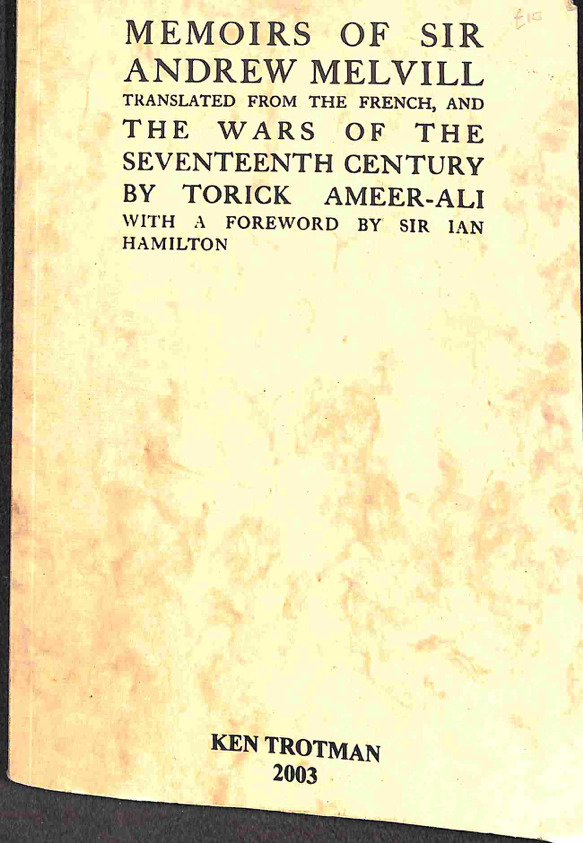
When I had finished speaking the officer left me without making any answer, but returned at once with a few of his soldiers, who placed me on pikes and carried me to a house somewhere nearby. His kind solicitude did not end here. He sent for a bed and had me placed upon it; he also sent for a surgeon, but none could anywhere be found, and in fact treated me as he might have treated a very dearly loved brother.
But I did not long enjoy the happiness of having him at my side. An hour later he was commanded to proceed elsewhere, and all he could do was to recommend me very warmly to the kindness of a poor old woman who lived in the house. He then took leave of me with a show of deep regret.
Just then the town was being pillaged, and the house of my hostess was not spared from the common misfortune. They took everything she possessed, down to the bed on which I was lying, after mercilessly dragging me out of it and throwing me into a trench that had been dug for the foundations of a house close by. My miseries did not end there; for they threw a dead body into the same place, with its legs right over me, which absolutely prevented my moving.
I cannot remember if I remained long in this state as I soon became unconscious; but I doubt not I would have remained there for ever, but for the incident I am about to relate. The good – wife and her two daughters had been stripped by the soldiers, and whilst they were searching for some rags where-with to cover themselves, they came upon me in the ditch into which I had been cast. They recognised me immediately and, remembering that I had been recommended to their care, dragged me out of this grave in which I had been cast, and perceiving some slight signs of life still in me, carried me back to their house, laid me on some straw and covered me as best they could.
I do not know what those kind women gave me, but consciousness soon returned, and after having informed them what had happened to me and how the battle had gone, I begged one of my rescuers to go into the town and enquire if General Douglas was among the prisoners. If she heard he had been taken, she was to try and speak to him and tell him my name and the condition I was in. The good woman who knew me from the first time I had been placed in her care, carried out my commission very adroitly.
She learned that General Douglas was a prisoner and that he had lost one eye. She also found a means of speaking to him without being observed and told him all that I had asked her to communicate to him.
Douglas was a near kinsman of mine on my mother’s side and my very good friend; he was much grieved at my misfortunes and sent his surgeon secretly the same night, who continued to visit me for four or five weeks.
One evening as I was awaiting him as usual, I noticed him approach with a countenance that foretold what he had to say. He informed me that he had come for the last time, but, as I was not yet cured, he brought me the wherewithal to dress my own wound until I had quite recovered. He said he was obliged to follow his master, who was being transferred elsewhere, but did not know whither. As for the other prisoners, among whom was my brother, they had been condemned to work in the sugar and tobacco plantations in the Islands of America.
These tidings caused me such violent sorrow that I could barely thank the surgeon and beg him to assure his master of my everlasting gratitude. He left with Douglas, of whom I never heard again, and I remained behind in the deepest desolation in the world.
I stayed another three months, or more, in that house before I entirely recovered my health, with no means of preserving life within me but what two of the good women with whom I lived were able to beg for me from door to door while the third tended me.
One day when my charitable benefactresses were out on their usual mission, a soldier of the garrison which Cromwell had left in the city because he mistrusted it, took into his head, whilst walking round, to come and look into the house where I lived. The door and windows were not very securely fastened, and he could see that it was inhabited. He knocked, I cannot tell for what reason, and receiving no answer he knocked louder, swearing that, if the door was not opened at once, he would force it in. My nurse was more dead than alive with fright and did not know what she should do. I told her to let him in, as it was better for her to open the door than to allow him to break it open, and she obeyed me just at the moment the impatient soldier was about to carry out his threat.
He burst in, hurling at both of us all the imprecations he could think of, and approaching me, asked who I was. I answered that I was a poor invalid who could tell him nothing that would satisfy his curiosity. ” No,” replied he; “I can see you are a Royalist. You had better own to it at once.” “As you say so,” I replied, “I will not deny it. I have served in France and in Flanders, and, when I went back to my home I was enlisted, I know not how, into the King’s service, and I fought with it in the last battle.” “I also have served in Holland,” answered the soldier; and thereupon he spoke two or three words of Dutch, to which I replied in the same language, and we became the best of friends. He began by unburdening his heart to me, telling me that at bottom he also was as good a Royalist as I, but that soldiers took whichever side they could engage on without any other thought than the benefits to be obtained; and that to prove the sincerity of his words he would be happy to serve me in any way.
Thereupon he asked the woman to go and fetch him some beer so that we might drink to each other. He also offered to share his purse with me, in which were four or five copper pieces; and finally, after remaining in the house about a couple of hours, he took leave, promising not to tell anyone that he had found me. He faithfully kept his promise, and I never again saw him, nor anyone else, so long as I remained in that house.
(1652) Meanwhile my health returned to me by degrees, and I resolved as soon as I had strength to walk, to go to London, where I hoped to find some means of extricating myself from my present misfortunes. My hostess approved and advised me for the better carrying out of my plan to travel in the disguise of a German tailor suffering from dysentery. I followed her good advice with success.
The day of my departure arrived, I took leave of the good women, to whom I owed such a deep debt of gratitude. They wept on parting and wished me all good luck; and accompanied me on my way as far as they were able to go. These marks of true and disinterested affection, for which there existed not the slightest obligation, made a deep impression upon me, and I realised full well that the Almighty often inspires the lowliest people with the most noble and exalted feelings and impulses.
Extracted from: “The Memoirs of Sir Andrew Melvill”
Colonel David Leslie
Colonel David Leslie is perhaps best known for the fact that he commanded a Royalist force of 3,000 Cavalry on Pitchcroft during the Battle of Worcester yet they took no part in the battle at all. It was said that the 51 year old Leslie was “riding up and down as one amazed or seeking flight.” A cavalry officers later wrote, “we of the horse, trampling one upon another, were much readier to cut each other’s throats than to defend ourselves against the enemy.”
Although he was in the Royalist army at The Battle of Worcester on 3rd September 1651, he had started the Civil War in the Parliamentary army. In 1644, he was appointed Lieutenant General, second in charge of the Scottish Covenanter army, sent to fight alongside the English Parliamentarians. He made his name at the Battle of Marston Moor on 2 July 1644, when his cavalry charge tipped the scales in favour of the Parliamentary forces and saved a
wounded Oliver Cromwell. Leslie took command of the siege of the Royalist stronghold at Newark, and it was to him that Charles I surrendered on 5 May 1646. He then took command of the eradication of remaining Royalist forces in Scotland in 1647. Royalists sought refuge in Dunaverty Castle and after a siege were defeated by the Covenanters. Those of the defenders not killed in the immediate action were then executed by Leslie’s forces. In all, some 300 people, mainly MacDonalds and MacDougalls, were killed.
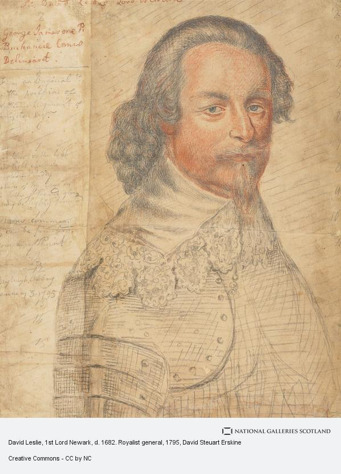
In 1649, Leslie purchased Newark Castle on the Fife coast and in 1650 he was appointed second in command of a new Scottish Covenanter army, this time with the intention of helping restore Charles II to the throne of England and defeat the Parliamentarians. However, Cromwell, although outnumbered 2:1 defeated the Scottish Covenanters under the command of David Leslie at the Battle of Dunbar on 3 September 1650. Charles II was crowned King of Scotland on 1 January 1651 and the campaign to restore him to the English throne continued. It came to a final end in defeat at Worcester on 3 September 1651. David Leslie, in trying to escape from Worcester was captured by the Parliamentarians and he spent the next nine years as a prisoner in the Tower of London. He was released after the restoration of King Charles II in 1660, and returned to Scotland, where he was made 1st Baron Newark, and lived out his days at Newark Castle dying in 1682.
During the stampede of escaping cavalry from Worcester they came across King Charles but were ordered away from him as he was trying to be inconspicuous but 3,000 cavalry made him very obvious. When Charles dictated his memoirs to Samuel Pepys after his restoration he said of Leslie, “All through the battle I could not get him to come to me. After the battle I could not get him away from me!”
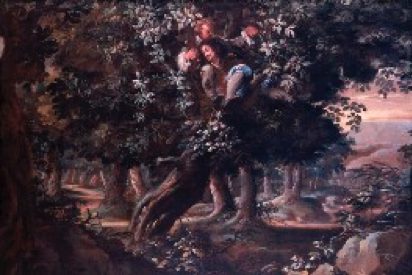
Colonel William Careless
Colonel William Carless/Careless/Carlis/Carlos was in the Royalist army at the Battle of Worcester, but perhaps his biggest claim-to-fame is that he hid up the Boscobel Oak Tree with King Charles II (of Scotland) on 6th September 1651 while they both escaped from the battle, three days before.
As well as the many versions of the spelling of his surname. his year of birth is given as both 1610 and 1620 so he was either 41 or 31 years of age at the Battle of Worcester. He changed his surname to Carlos, the Spanish for Charles when the monarchy was restored in 1660. He was from a Roman Catholic family from Brewood, Staffordshire, who were devote Royalists. When the Civil War started in 1642 he raised a troop of cavalry in South Staffordshire and fought with the Royalist army in their defeat at Marston Moor in July 1644. In December 1644 he was captured by the Parliamentarians in a minor skirmish but was released soon after and joined the Spanish army.
When King Charles returned to Scotland in 1650 Careless also returned and raised a small regiment of horse and joined the Royalist army at Worcester and was given the rank of Major. He covered the escape of Charles by leading a cavalry charge holding back the Parliamentary forces while Charles escaped through St Martin’s Gate. He claimed that he witnessed the last man to be killed at the Battle of Worcester. Miraculously he managed to escape from Worcester and three days later went to Boscobel House where he found Charles in hiding. It was his suggestion that they should hide up an oak tree in the wood as he correctly knew the house would be searched. They spent 6th September hiding in the oak tree while Parliamentary soldiers searched the wood beneath them. He made it to France independently of Charles, but they returned together in 1660 and he was granted a handsome pension by the King. In 1680 he was recorded as living in Hallow Worcester and he died in 1689, aged 69 or 79 years of age.
Captain James Hind - Royal Highwayman
Many fascinating characters were part of The English Civil War, but perhaps none more fascinating than James Hind, a notorious Highwayman who specialised in targeting Parliamentarians during the English Civil War and became a folk hero until his grisly execution at Worcester in 1652.
Hind was born in Chipping Norton, Oxfordshire, the only son of a wealthy Saddler. He had a good education and became an apprentice to a local Butcher. However he was treated very badly, constantly criticised and beaten so he ran away to London where he met a noted Highwayman, Thomas Allen who taught him the tricks of the trade. Hind soon became a very accomplished Highwayman and gained a reputation for politeness and charm, often not taking all their money from his victims.
On one occasion Hind was approaching one of his favourite Taverns when he saw the Landlord arguing with a man outside the premises. Hind rode up to them and asked the Landlord what the problem was. He was told that the man the Landlord was arguing with was a Bailiff. The Landlord had failed to pay his rent and the Bailiff wanted to take possession of the Tavern. Hind asked how much was owed and when the Bailiff told Hind he produced the full amount and even gave the Bailiff a small tip.
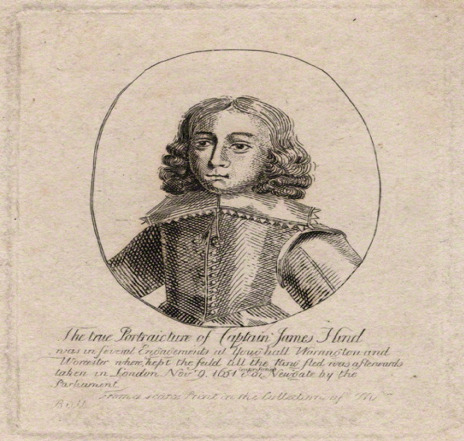
Captain James Hind – 1616-1652
The Bailiff galloped off and the Landlord invited Hind in for a “thank you” pint. Hind said there was something he had to do first and rode off into the woods. Hind pulled up his mask and changed his coat, then stepped out into the rode just as the Bailiff came along. Pointing his pistol at the Bailiff’s head he stole all his money but left him with the tip the kind gentleman had given him. Hind returned to the Tavern, shared his takings with the Landlord and enjoyed his “thank you” pint of ale.
When King Charles I was executed in 1649 Hind was outraged and swore that he would target the ‘regicides’ who had signed the King’s death warrant. Among his victims were Hugh Peters, the Parliamentary Preacher, from whom he took 30 pieces of gold and chastised him for having such wealth. Another was John Bradshaw, the President at the High Court of Justice at the trial of the King. He pointed his pistol at Bradshaw’s head and said, “I have now as much power over you as you lately had over the King.” He let Bradshaw live but just to put him to maximum inconvenience he rather callously shot the six horses that were pulling his carriage.
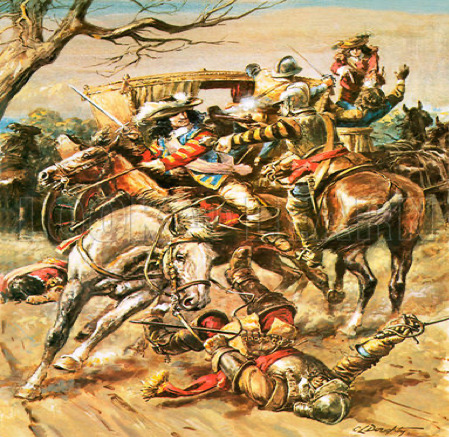
Painting by C. L. Doughty of Captain James Hind Attacking Oliver Cromwell’s Carriage
He robbed the regicide Major General Thomas Harrison, (who was later at the Battle of Worcester) of £70 but was hotly pursued by Parliamentary soldiers. He thought he had shaken them off but as his horse tired he heard a rider catching him up. He turned and shot the rider dead however it was not a soldier, but a servant trying to catch up with his master. This was to be Hind’s one and only casualty in his highway robbery career.
Hind’s most ambitious target was to be Oliver Cromwell himself. Hind joined up with his tutor, Thomas Allen and they lay in wait for Cromwell’s carriage on the Huntingdon to London Road. But they had totally underestimated their target as Cromwell had an escort of seven elite troopers from the New Model Army, who captured Thomas Allen. Hind was chased away, in fact he pushed his horse so hard that it collapsed and died but he had escaped from his pursuers and he soon stole another horse.
Hind was such a fanatical Royalist that when he heard Charles II had landed in Scotland in 1651 and was recruiting a Royalist army, he galloped up to Stirling and enlisted. Charles was most amused by Hind’s tales of robbing prominent Parliamentarians and made him a Captain. He rode the 300 miles to Worcester with the Royalist army and fought in the 3rd September 1651 Battle of Worcester. It was said that Hind had helped the King to escape and had “kept the field until the King was fled.” He then leapt over the city wall and made it to London but he was betrayed and handed over to the Parliamentarians. On 12th December 1651 he appeared before the Speaker of the House of Commons. Although he was guilty of many highway robberies he was sent to Reading where on 1st March 1652 he faced the charge of murder of the servant. By this time Oliver Cromwell’s Parliament had passed the Act of Oblivion to “forgive all former offences but those against the state.”
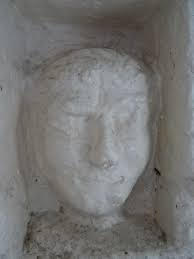
William Guise
On the 22nd August 1651 Charles II and his largely Scottish Army of around 16,000 men reached Worcester. By 27th August Oliver Cromwell was at Evesham with Parliamentary forces totalling 28,000 and more arriving daily from the militia as the Parliamentary Army marched towards Worcester. It was anticipated by Cromwell that he may have to besiege the City and by the end of August the Parliamentary Scoutmaster had spies operating in Worcester to determine the Royalist Army dispositions. On 29th August Cromwell’s artillery opened fire on the Royalist position of Fort Royal near the Sidbury Gate. The purpose of this opening barrage was to show the defenders of the City what destruction they would face if they did not surrender and also to determine the Royalist strength of artillery firepower. The Scots on the Royalist Fort Royal returned fire “as if they never feared to want for powder or bullets”. However the fusillade against Fort Royal prompted the Scottish Royalists to attempt to neutralise the threat from the Parliamentary cannon by planning an attack against the Parliamentary positions on Red Hill and most probably also against those on Bund’s Hill. This surprise attack was planned for the night of the 29thAugust and was called a “camisado” after the Spanish word for shirt because the attackers would wear shirts over their armour to aid friendly identification in the dark.
The Women of Those Who Were There
Lady Ann Fanshawe nee Harrison
For every man who took part in the English Civil Wars most will have left a woman or women behind: mothers, daughters, wives, sisters, aunts or cousins.
In the seventeenth century women had few rights and privileges: their duties were to look after the home and raise children and, in normal times, always under the patriarchal eye.
According to Antonia Frazer in her book The Weaker Vessel there are enormous difficulties with the written record as far as women of the sixteen hundreds are concerned … ‘the vast majority below the gentry class were …illiterate’. For those women who did write as a hobby or for publication it was anticipated that men would scorn their work. According to Margaret Cavendish (first Duchess of Newcastle) ‘because they think thereby women encroach too much upon their prerogatives’ and furthermore “a woman’s name ‘is lost as to her particular in marriage’”.
Lucy Moore’s book Lady Fanshawe’s Receipt Book – The Life and Times of a Civil War Heroine – is based on a document which still survives today together with a memorial she wrote for her son.. A receipt book contained details of everyday life, not an aid to accountancy, but in modern terms, a recipe book “containing medicinal remedies and culinary receipts”. Just as we would cut out recipes from a magazine or copy and paste them from a website or Facebook, these would be handwritten notes – receipts given by family and friends. It was an irreplaceable notebook, a text book or a guide to life.
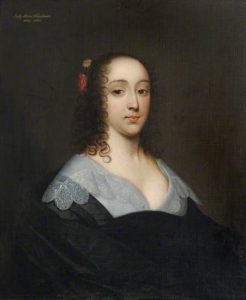
Ann Harrison was born in 1625. Her father, Sir John Harrison, was a prosperous servant of the Crown as a customs officer. “He owed everything to the King”. When the English Civil Wars began, Charles I decamped his Court to Oxford and his followers went with him. In 1643 Ann and her sister followed their father and with her she took copies of her mother’s receipts which she had copied out as a child. These became the basis of her own receipt book in later years. Her mother had died two years earlier.
Richard Fanshawe, a tall man who “was gracious and wise” belonged to the Fanshawe family from Ware Park and were near neighbours of the Harrisons. Because the family held the lucrative position of the King’s Remembrancer* they were seen to be grander than Ann’s family. Richard was a committed Royalist, a member of the Privy Council and an ambassador. He was fluent in Italian, French and Spanish and had a taste for the fashionable pursuit of poetry.
Richard was 36 years old when they met and Ann was 17. They married on 18 May, 1644 in a church two miles away from Oxford and thereafter enjoyed 23 years of marital bliss. At this time Richard was Secretary of War to the future Charles II. They were poor and had only £20 between them.
Marriage was a seventeenth century women’s career and within a month Ann was carrying her first child. Her receipt book includes recipes of herbal medicines to calm her fears and ease her pain. Doctors were few a penny in those times and these medicines were essential. Their son Harrison was born on the 23 February 1645. Richard had to leave Oxford on the 8 March following his royal master, the Prince of Wales, to Bristol, despite Ann and baby being in ill health. Harrison died two days after Richard’s departure.
Ann went on to have thirteen more children and suffered several miscarriages but she led an eventful life supporting her beloved husband. Whilst Richard was away in Bristol she was a) nearly killed by a stray bullet b) there was an incident in which she had to defend her house against the theft of royal jewels which had been left in her safe keeping. Furthermore she travelled to the Scilly Isles to join her husband and c) whilst on board her luggage was stolen by the crew d) whilst away from home a trusted friend stole all her possessions to the value of £200 (£150,000 today) and e) whilst heavily pregnant at this time she experienced upon waking “her bedroom near swimming in the sea”. Thus they were destitute of clothes and meat and fuel, “we truly begged our daily bread of God for we thought every meal our last”.
In 1650 the Fanshawe’s were travelling through Europe on the King’s behalf. Lady Ann was sent back to London to raise money for the King’s cause. She survived a ship wreck, raised some funds and went to Ireland to join her husband. Tragedy struck yet again and she heard of the death of her second son. This would have broken anyone’s spirit. Lady Ann, pregnant again, fell off a horse, breaking her wrist. In the meantime Cromwell arrived in Ireland and she was forced to escape with all her worldly goods in the dead of night to be reunited with her husband.
Escaping the Parliamentary forces Sir Richard and his family were sent to the Spanish court to seek support. They took ship and Lady Ann’s luck did not improve. As they went through the Straits of Gibraltar they saw “coming towards us, with full sails, a Turkish galley well manned”. The heroine in Ann now really came to the fore. Despite being locked in her cabin while the sailors and male passengers manned the decks she bribed a cabin boy with half a crown and, borrowing his clothes, went up on deck to stand by her husband. To everyone’s relief the outcome was a stand-off and they continued safely to Malaga. Having arrived at Madrid safely their next child arrived, a girl, who only lived 15 days. The Spanish court, without a contribution from the impoverished exiled Charles II declined to assist him. The Fanshawes returned to France; Sir Richard continued to Scotland and Ann went to London with two children in tow and once again heavily pregnant.
After her baby was born in June 1651 she retired to Ware Park. It was here that she heard of the Royalist defeat at the Battle of Worcester on 3 September and the young king’s disappearance. She waited for word of Richard ‘dead or alive, for three days it was inexpressible what affliction I was in. I neither eat nor slept, but trembled at every motion I heard, expecting the fatal news’. A news-sheet put her out of her misery, he had been taken prisoner.
As the day of the Battle had drawn to a disastrous close Charles fled the town whilst a cavalry charge led by the Earl of Cleveland provided a distraction. Charles headed north-east and Richard headed south-west towards Newport hoping to take a ship to Europe. He and the Scottish Earl Lauderdale were arrested there the day after the battle and marched towards London as prisoners along with many others. As a man of letters he had not been involved in any of the fighting but he had the aforethought to burn all his papers before his arrest ‘which saved the lives and estates of many a brave gentleman’.
On his forced march to London Fanshawe was said to have been set upon by two Parliamentarian soldiers who, taking a liking to his fine clothes stripped him naked. He accepted an offer of two women’s shifts as they passed Lady Denham’s estate – to save his life from the cold. He was kept in solitary confinement in Whitehall. He was able to let Ann know that he was safe and she rushed to London and stayed in lodgings. She recorded in her memoirs that she walked every morning to Whitehall and was able to talk to him from outside. He became ill in captivity from exposure and contracted scurvy. Ann went to Cromwell and pleaded for Richard’s release on the grounds of his ill health. Her request was granted but she had to pay a £4,000 bond which she borrowed from family and friends. On the 28 November 1651 Richard became a free man. For a while the couple lived very quietly with Ann nursing Richard back to health. Their seventh child was born exactly nine months and two days after Richard’s release from prison.
On 3 September 1658 Oliver Cromwell died at Whitehall, and the Fanshawe’s were free to travel home to Ware. He met his old friend, Philip, Earl of Pembroke who offered him the job of tutor to his youngest son William, Lord Herbert. For this, they travelled to France. As winter drew in Ann waited for her husband’s word summoning her to join him. A letter came and she arranged to go to France with a man, a maid and her three oldest children. She paid a crown for a forged pass and altered it at home to her maiden name Harrison and made good her escape.
Meeting up with her husband a while later, tragedy struck again with the loss of her only son from smallpox. Trips to Holland and London gathering funds kept Lady Ann busy until the Restoration. They were part of the joyous fleet that accompanied the King. However, enemies worked against Richard and he was blocked from taking a promised position as Secretary of State, although he was still able to take his ceremonial place at the Coronation and other state occasions including the marriage of the King to the Portuguese Catherine of Braganza: but he was removed from the centre of government to Lisbon and the little family travelled to take up their residency.
Lady Anne enjoyed an excellent social life with both Portuguese and English women. Upon recall to London in 1663 they made their way to London and attended a round of social engagements including meetings with the King and his Portuguese Queen. They had very little rest as they were posted to Spain almost immediately. All appeared to be well in Spain and just before he was due to return to England Sir Richard was suddenly taken ill and after a very short illness died. The couple had been married twenty-two years and produced 16 children, only a few of whom survived.
Ann made plans to leave Spain with her four daughters and son. It was 1666 and their popularity was such that the Spanish queen offered Ann a pension if she would stay in Spain, the only proviso being that she change her religion from Anglican to Catholicism. She refused and the family left Spain on 3 October having sold what they did not want to keep and sent everything else on. Ann had already sent Richard’s embalmed body back to England. During her journey home she heard the sad news of The Fire of London. Arriving in November 1666 she sent her husband’s body to be laid to rest in Hertford in her family vault in Allhallows Church.
She commenced battle to receive “arrears of my husband’s pay, which was two thousand pounds, and to reimburse me five thousand eight hundred and fifteen pounds my husband had laid out in his Majesty’s service”. (Worth nearly £700,000 in today’s money). It took two years of badgering to get the £5,000 paid to her. In the meantime she was forced to sell gifts that had come from the Spanish court. At this point she was looking after her 12 month old son and four daughters, the eldest of whom was thirteen.
Lady Ann Fanshawe died in 1680 aged 55, quite possibly exhausted by pregnancy and child birth, money worries and the sheer toll taken by a life of travel in mid seventeenth century conditions.
* The King’s Remembrancer originally dealt with the recovery of penalties and debts due to the crown.
